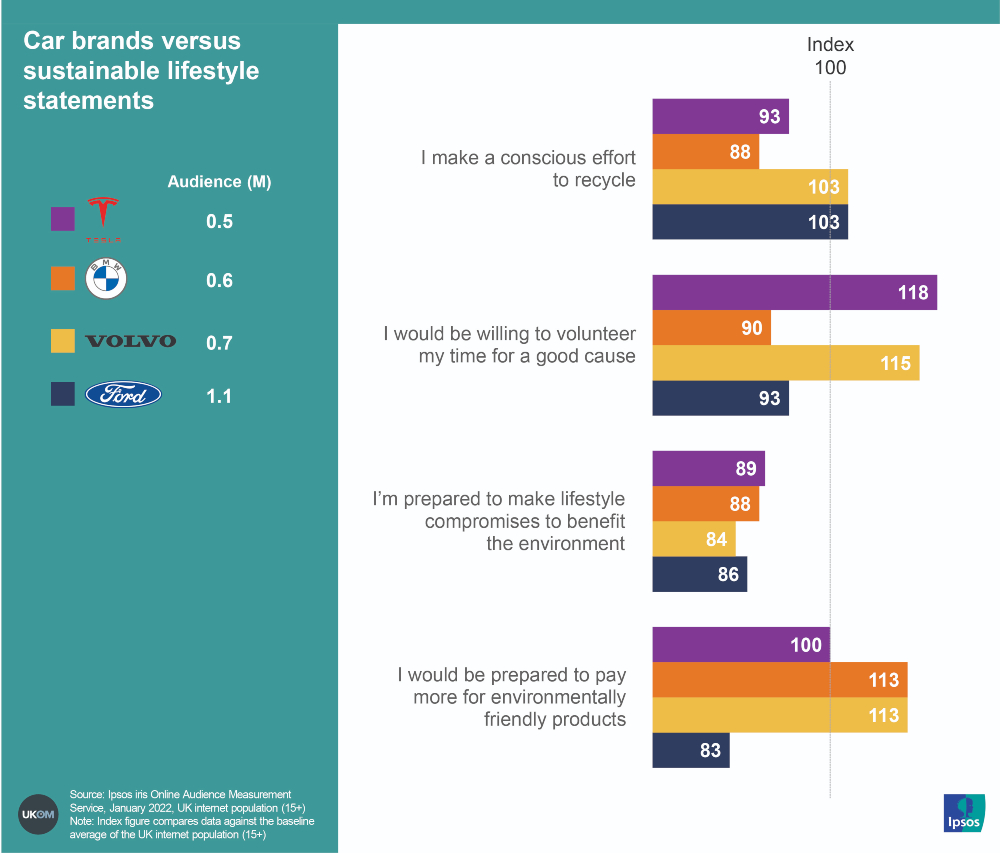How do I effectively plan in 2022 to engage more with the right audience?
Ipsos iris data helps marketers make informed decisions about their category, brand, and online audiences by leveraging granular and robust data available in an easy-to-use interface.
Let’s explore how we might profile audiences in the automotive category. There is increased focus on climate change and the impact of greenhouse emissions as well as the role of the automotive sector in ensuring a more sustainable future in the UK. With 2030 looming, more automotive brands are investing in electric cars resulting in increased opportunities to reach newer consumers. Therefore, it is essential to reach the right audience and build connection and engagement with them to establish the brand in the emerging electric car industry.
In Jan’22, Ipsos iris data revealed that the automotive category (dealers and brands only) reached over 13m shoppers online, who spent on average 23 minutes on these sites. Going deeper specifically within the automotive-brand category, 32 car manufacturers reached 6.6m people. Of this audience, over two-thirds (69%) visited the top 10 car brands.
When looking at the average profile of this group, users are mainly 45-64 years old, male, ABC1, and are married or in a civil partnership. To take this one step further, we can understand their attitudes towards climate change through four key lifestyle statements.
- 83% agree they make a conscious effort to recycle
- 60% agree they would be willing to volunteer their time for a good cause
- 53% agree they are prepared to make lifestyle compromises to benefit the environment
- 46% agree they would be prepared to pay more for environmentally friendly products
For automotive brands looking to drive new business for their electric car offerings, we can look at how the responses to these lifestyle statements differ between the audiences for numerous brands. Looking at the top three car brands by reach (Ford, Volvo, and BMW) and a fully electric car brand (Tesla) reveals:
- Ford and Volvo attracted more shoppers who agree they would ‘make a conscious effort to recycle.’
- Tesla shoppers, followed by Volvo, were more ‘willing to volunteer’ their time for a good cause.
- Interestingly, all these brands (including Tesla) attracted visitors who were less likely than the overall UK population to ‘make lifestyle compromises to benefit the environment.’
- Both Volvo and BMW shoppers are more likely than Tesla to be ‘prepared to pay more for environmentally friendly products.’

Note: Index figure compares data against the baseline average of the UK internet population (15+).
Overall, we might infer that whilst the audiences for these brands are willing to pay more for a product that is environmentally conscious, they don’t want this to be at the expense of their lifestyle. So, while price sensitivity might be less of an issue when marketing electric cars, it is important for advertising to position green credentials as a value add and not as a compromise to quality.
Accurately determining audience profiles allows brands to target online audiences more effectively. Lifestyle statements can help you understand the key drivers for customer behaviour online, informing planning for advertising campaigns and promotional activities, and ensuring you can align your brand’s proposition with the values of your audience.
For more information about how Ipsos iris can answer your key business questions, fill out the form here or contact the Ipsos iris commercial team.

